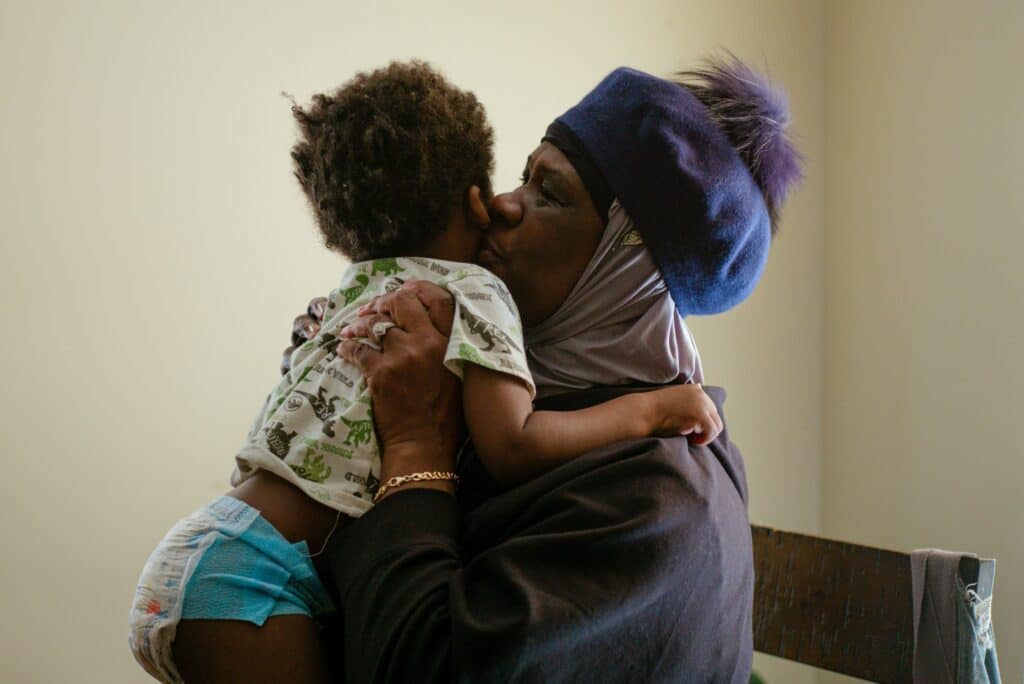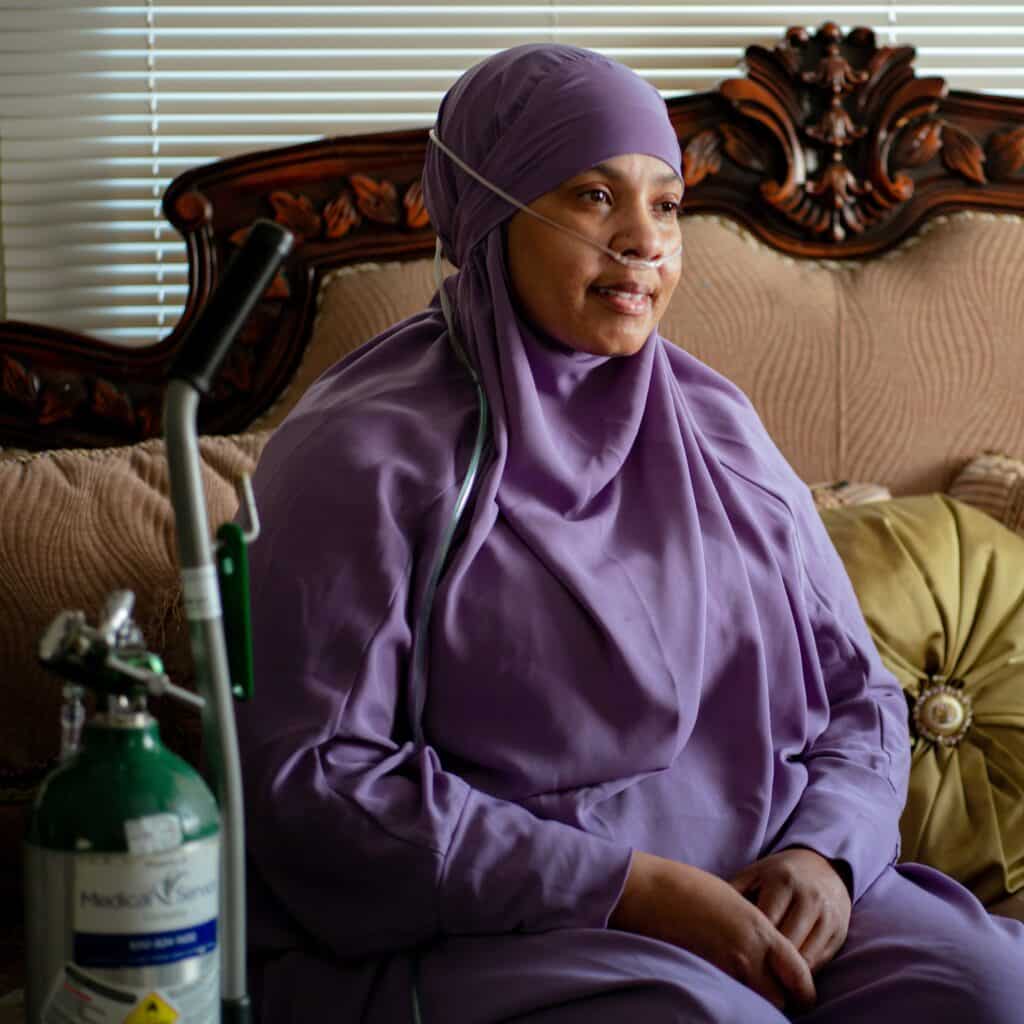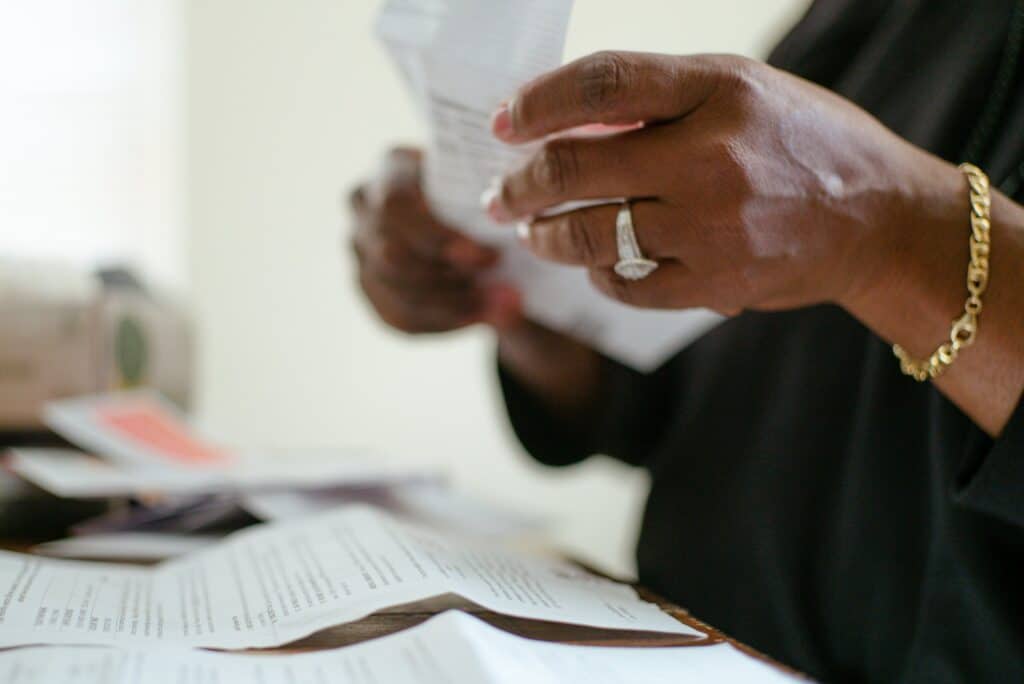
Rashidah Abdulhaqq worries her electricity and heat will be shut off.
These are vital services during normal times, but especially during the winter, and especially when she has a portable oxygen tank she carts around to keep herself alive.
Flanked by several windows wrapped in plastic to better insulate her drafty Glenville home, Abdulhaqq said she’s been trying for almost three months to get an application in for several programs to help her with her utility bills.
Struggling with bills? Check out this guide created to help by the Northeast Ohio Solutions Journalism Collaborative and Black Girl Media. You can find physical copies at your local library branch in Cleveland and Cuyahoga County soon.

But despite her efforts, it’s been slow to get assistance from Cleveland nonprofit CHN Housing Partners, one of two agencies in Cuyahoga County where residents can apply for HEAP, a federal utility bill assistance program, and PIPP, a state program.
The Home Energy Assistance Program (HEAP) provides a once-per-season emergency payment for low-income people who are behind on utility bills, while the Percentage of Income Payment Plan (PIPP) provides discounted bills to the same population.
“They have this number that you call and it is constantly busy, and you can never get through the line. Plus, I can’t even schedule the appointments online,” Abdulhaqq said.
The online appointment scheduler constantly says all appointments are taken, she explained.
Abdulhaqq did recently get an appointment through CHN, but only after roughly three months of seeking one. The appointment is set for late March. Meanwhile, she received disconnection notices for most of her utilities in February.
Abdulhaqq is one of a number of residents in Cuyahoga County who have sought help to pay their utility bills in winter, but have been unable to get through the bureaucracy to actually receive assistance. Extensive paperwork that must be resubmitted every year, not enough available appointments, and the inability to talk to anyone who can help are some of the barriers.
A mother of four, Abdulhaqq isn’t currently working because she has lupus, an autoimmune disease, so she relies on her daughters who are old enough to work to help her out. She requires an oxygen tank–which makes her electric bill even higher–because the disease attacks her lungs.

Editor’s note: Abdulhaqq is the daughter of Rashidah Abdulhaqq, a freelance reporter who worked on a NEO SoJo story last year.

While Abdulhaqq isn’t that far behind on bills yet, Stockyards resident Robin Turner is. Turner, a mental health specialist, has received disconnection notices for both her gas and electric. She said she’s been trying for several months to reverify her enrollment in the PIPP program through CHN and get any other help they offer. So far, she’s run into similar issues.
Turner had submitted paper copies of her applications and documents on multiple occasions over the last several months, but she was told she didn’t provide the correct paperwork. It took her almost a month to finally correct those issues and get an appointment to be put on the program, which is now set for early March.
“When you go and ask for help, the system is intentionally set up so that they take people through all these loopholes and nothing ever happens,” she said. “All I needed to do is be reverified. No one reaches out to you, no one says ‘Hey, this is what we can do, just fax over this’”
To CHN’s credit, when approached about these issues by a reporter, a representative did reach out to both Turner and Abdulhaqq to help them through the process.
CHN Spokesperson Laura Boustani said the biggest reason applications can be delayed is because of missing paperwork. Programs for utility assistance often require extensive documentation from applicants, including birth certificates for all household members and pay stubs from everyone in the house who’s working.
Boustani explained that between Step Forward and CHN, which share an online application system for HEAP and PIPP, there are about 90 appointments available each day for those programs in Cuyahoga County, but they can be taken quickly each hour. CHN has also been understaffed in recent months, and with demand high for these services, Boustani said it can be hard to keep up.
“We had gone to the state last year and said we need more resources to open up more appointments,” she said. “And we got that. What we’re finding now is that it’s still an issue, because the need continues to grow.”
Michelle Graff has studied the HEAP program extensively. She’s an assistant professor at the Maxine Goodman Levin College of Urban Affairs at Cleveland State University.
In Ohio, typically only about 20-25% of the income-eligible population participates in HEAP. Other federal assistance programs like SNAP – the program known as “food stamps” – typically boast a 65% participation rate, and for Medicare, it’s even higher, almost 100%, Graff said.
As to why that is, Graff said she’s studying that issue. She does think it might have something to do with the concept of “administrative burden.” That refers to the burden placed on people to prove they are eligible for programs. CHN and Step Forward ask people to come up with pay stubs and birth certificates, for example.
“(Those) applications have you jump through these hoops and overcome these hurdles to access them,” she said.

Meanwhile, U.S. President Joe Biden signed an executive order in December meant to improve the experience of people applying for government assistance programs. That order specifically mentions SNAP, Medicare and Social Security.
There is no reference to the energy assistance programs HEAP and PIPP, however.

This project is part of Connecting the Dots between Race and Health, a project of Ideastream Public Media funded by The Dr. Donald J. Goodman and Ruth Weber Goodman Philanthropic Fund of The Cleveland Foundation.
This story is a part of the Northeast Ohio Solutions Journalism Collaborative’s Making Ends Meet project. NEO SoJo is composed of 18-plus Northeast Ohio news outlets including The Land. Conor Morris is a corps member with Report for America, and Michael Indriolo is a reporting fellow for The Land. Email Conor at cmorris40@gmail.com, or Michael at mindriolo@thelandcle.org.
Keep our local journalism accessible to all
Reader support is crucial as we continue to shed light on underreported neighborhoods in Cleveland. Will you become a monthly member to help us continue to produce news by, for, and with the community?
P.S. Did you like this story? Take our reader survey!



